Ganni and Ahluwalia unveil upcycled collection
The Copenhagen and London labels reveal a spliced and diced womenswear collection, formed from vibrant deadstock fabrics
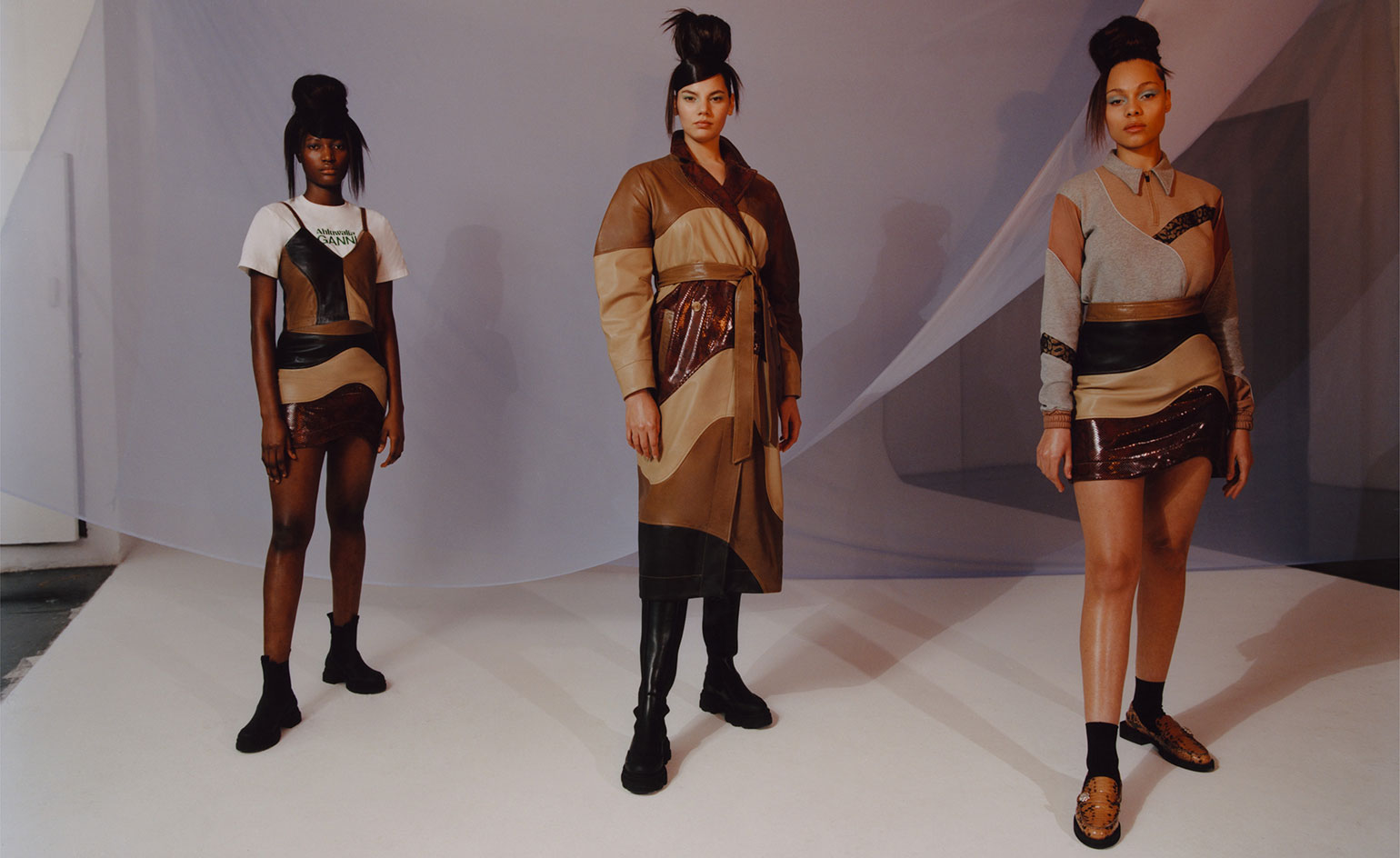
After a year largely indoors, unsurprisingly, a lot of us are dreaming up our post-lockdown celebration outfit. ‘Ganni loves to party and so do I!' laughs Priya Ahluwalia of the shared going out-inspired impetus behind the Danish womenswear brand and her London menswear label. ‘I've been thinking a lot about the concept of dancing and behind free'.
A zest for life isn't the only thing uniting the two brands. Both are staunch advocates of responsible design, with both Ganni and Ahluwalia incorporating deadstock fabrics into their collections, as a way to manufacture within a circular economy. In February 2021, Nigerian-Indian Ahluwalia – who launched her label in 2018 – was awarded the prestigious Elizabeth II Award for British Design, and her sportswear and tailoring-inflected designs incorporate vintage and waste materials, sourced from a global network of suppliers. Through her label, she has also drawn attention to the Indian city of Panipat or the ‘cast off capital' of the world, where many discarded garments from the West accumulate, collecting as fabric mountains of waste. You can read more about the importance of upcycling, in our comprehensive sustainable fashion guide.
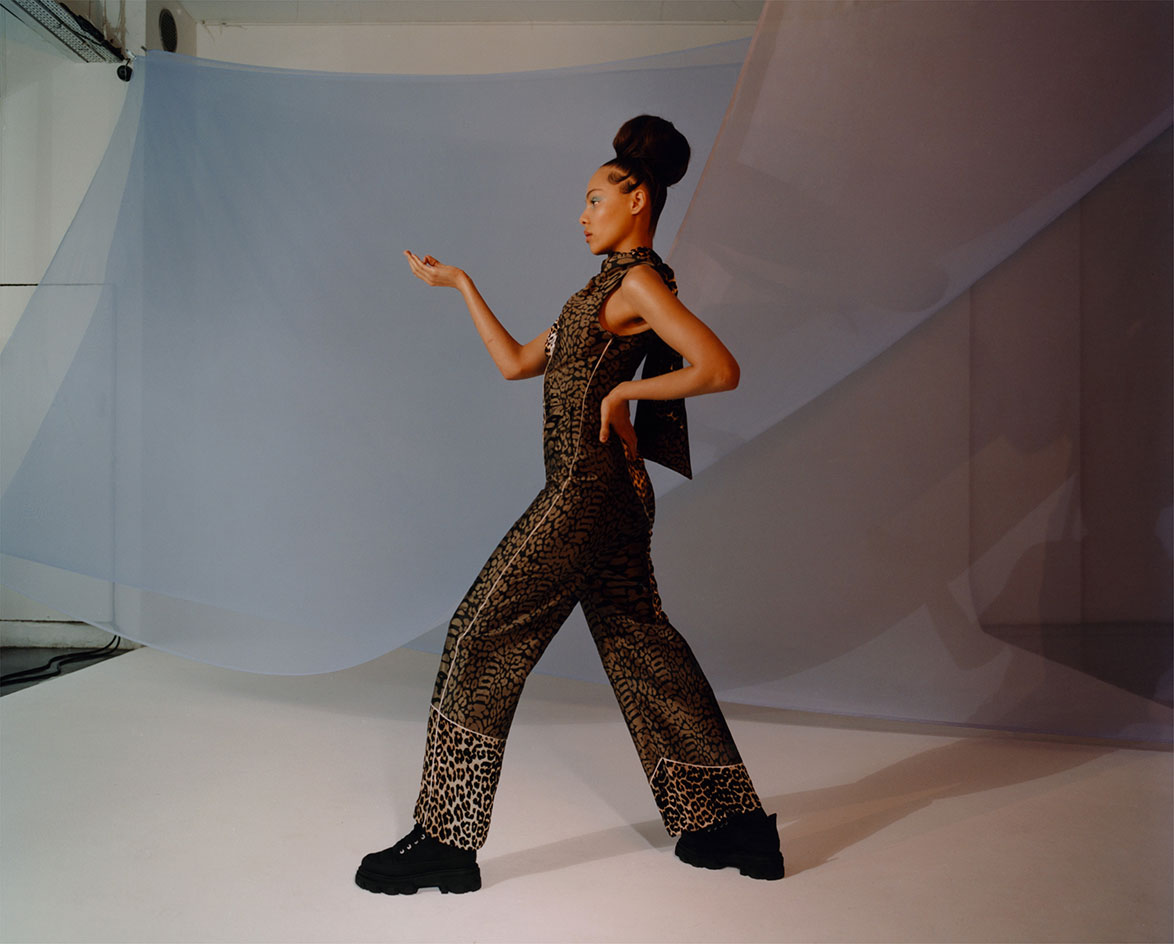
‘The way Ahluwalia has used upcycling in her collections since the start of her business is very inspiring,' says Ditte Reffstrup, co-founder and creative director of Ganni. In February 2020 Ahluwalia flew to Copenhagen to attend the label's fashion show and discuss the concept of a collaboration. The resultant offering is a series of energetic and vivid designs, from playsuits to mini skirts, robe coats to strap dresses, patchworked using deadstock leopard and zebra prints and leathers and featuring sporty toggles and form-flattering ruched details. ‘Ahluwalia had complete freedom,' Reffstrup says. ‘That's really how the greatest collaborations work. She's really bought our surplus fabrics to life. I love the incorporation of her signature wavy motif'.
Last year, Ahluwalia had a chance to visit Ganni's archives before the world closed down in the wake of Covid-19. ‘In a really positive sense, they actually had less deadstock fabric than the realised,' she says. The designer approached creating pieces with a two-pronged approach, looking at external creative references, and also focusing on the materiality of Ganni's surplus stock and its own archive silhouettes. ‘I was looking at swatches and samples,' she says. ‘But also researching photos of my family and images from the UK Garage scene, plus reading a book on 100 mid-century chairs.'
RELATED STORY
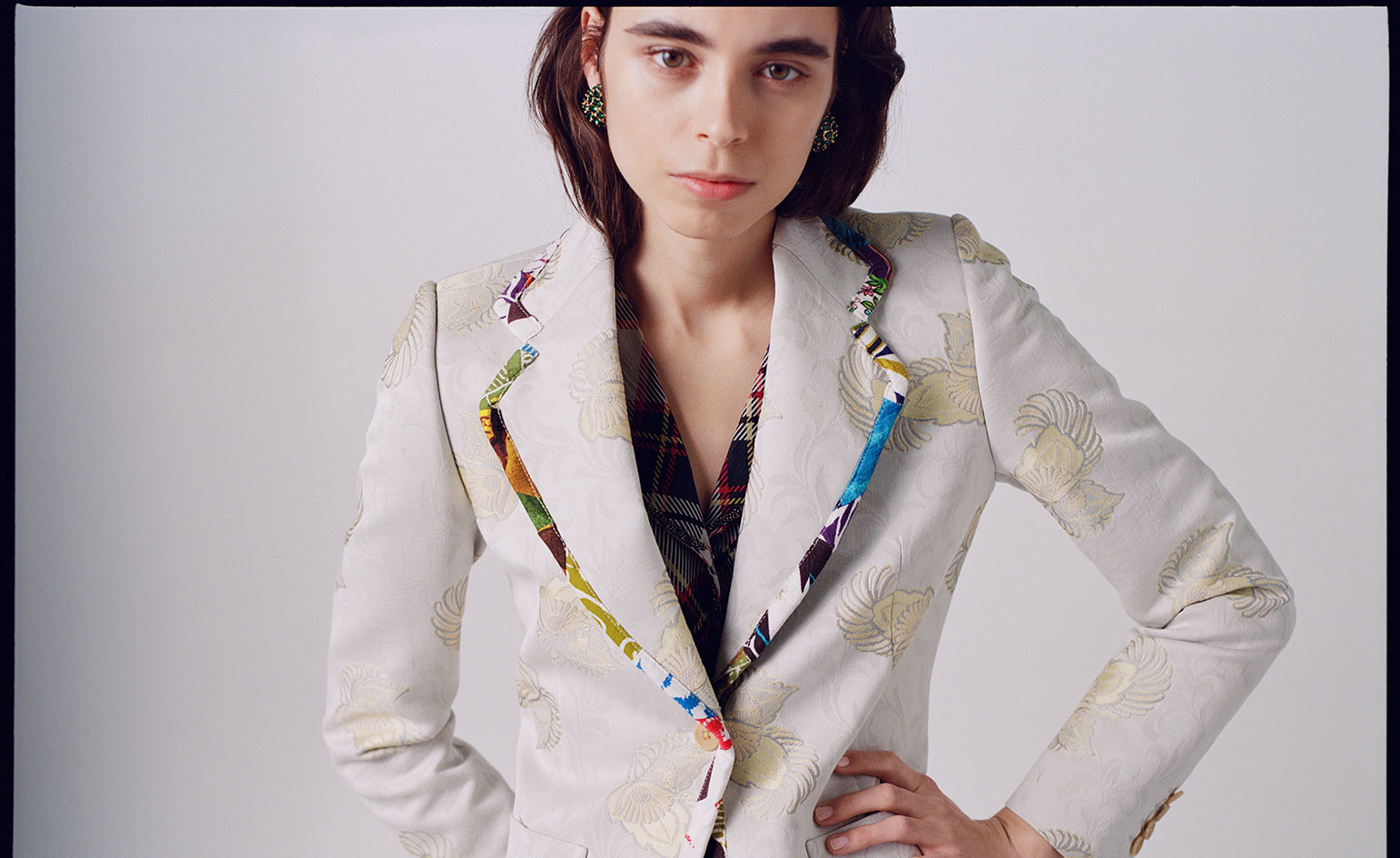
For Ahluwalia, the experience of collaborating with Ganni has been invaluable, not only because it was her first womenswear project. ‘I've had regular mentoring from [co-founder and CEO] Nicolaj, discussing things like operations and range planning. I've learnt a huge amount about business, and it's allowing me to build a company that supports its staff and gives back positively to society. This isn't like any other partnership.'
Reffstrup is equally effusive about the collaboration. ‘When I presented Ahluwalia's first drawings to the Ganni team, there was just complete silence,' she says. ‘...One day in the near future, we're going to be able to tell people we once worked with her.'
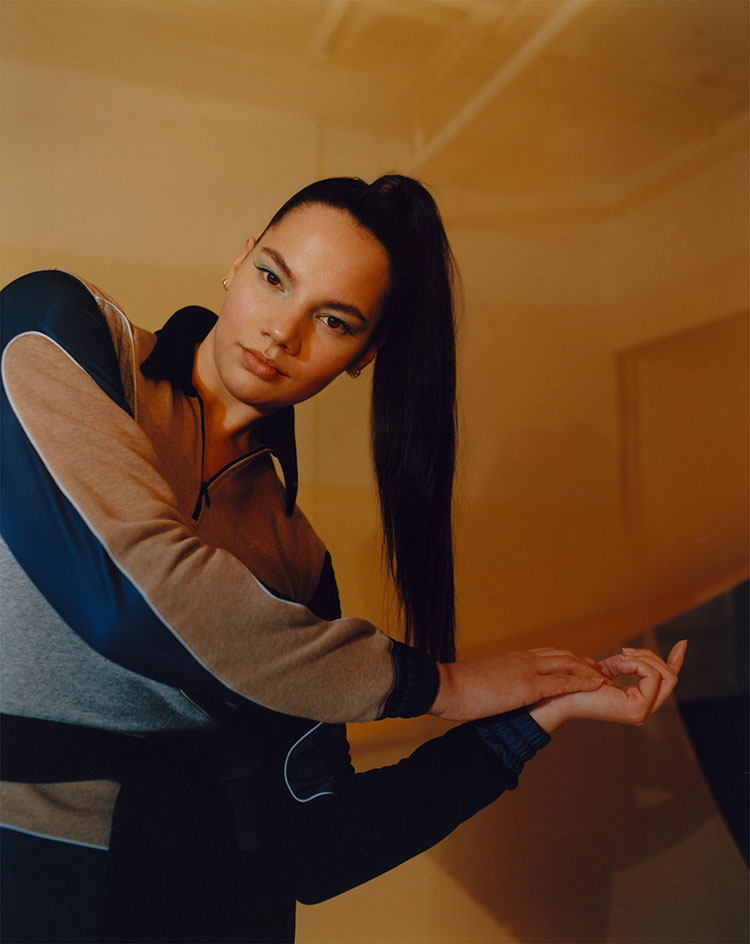
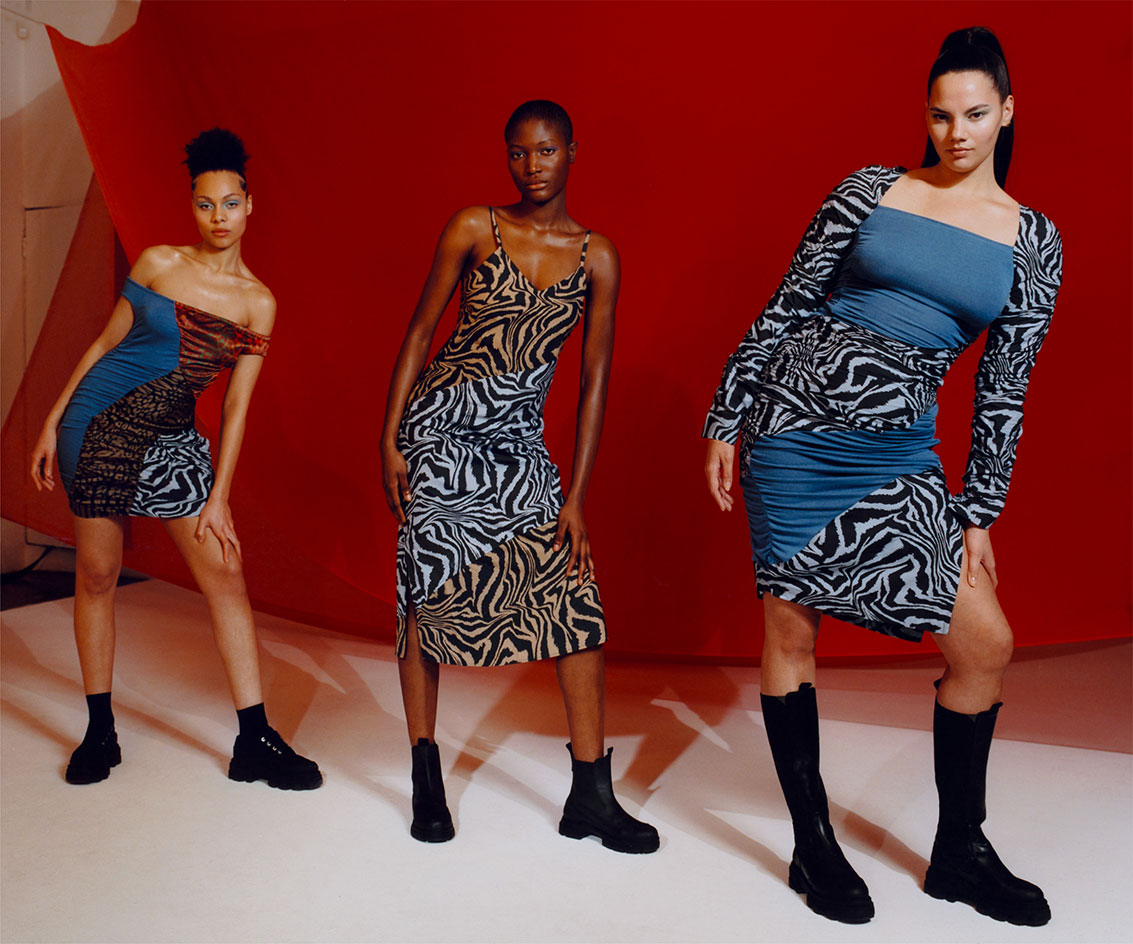
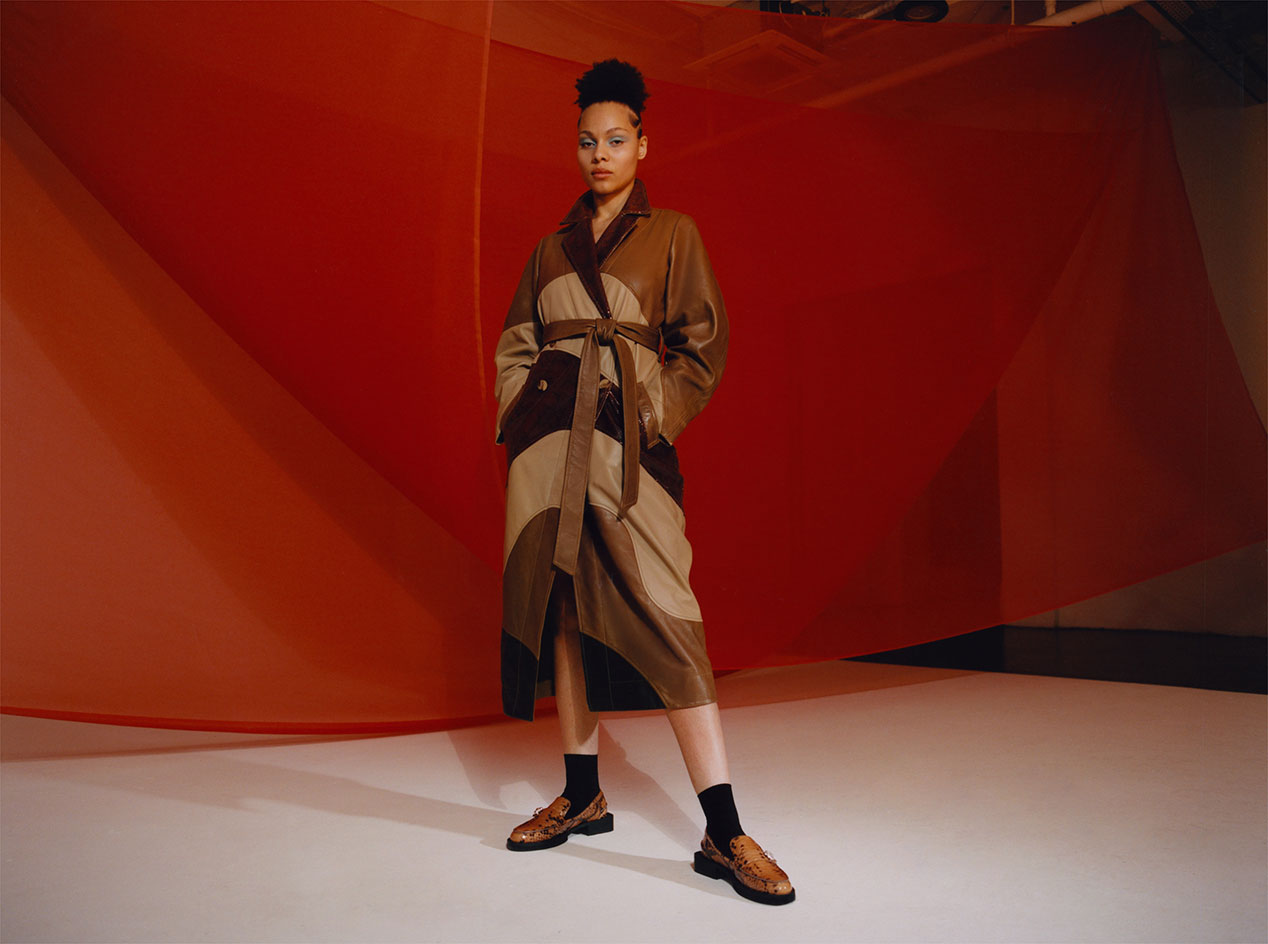
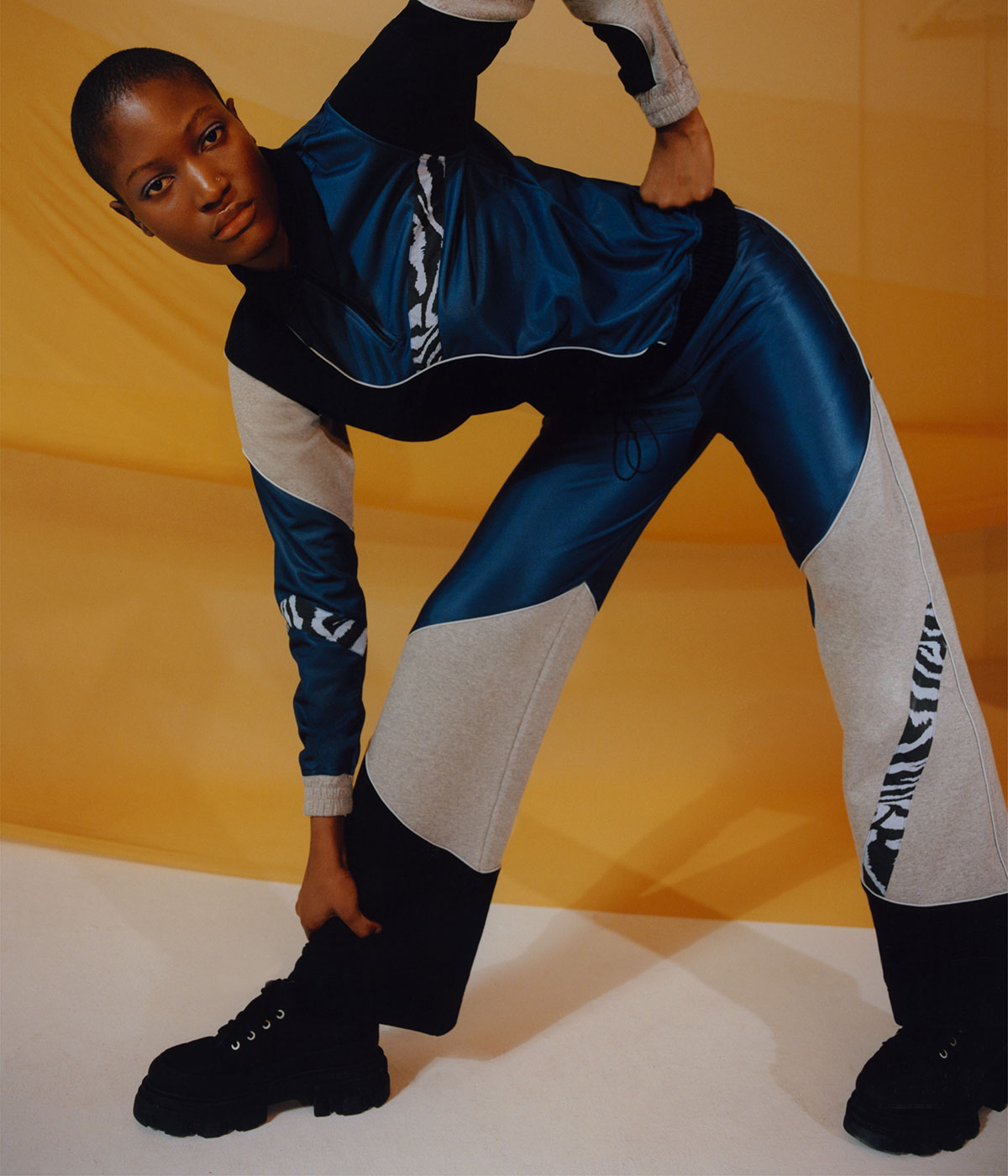
INFORMATION
ahluwalia.world
Receive our daily digest of inspiration, escapism and design stories from around the world direct to your inbox.
-
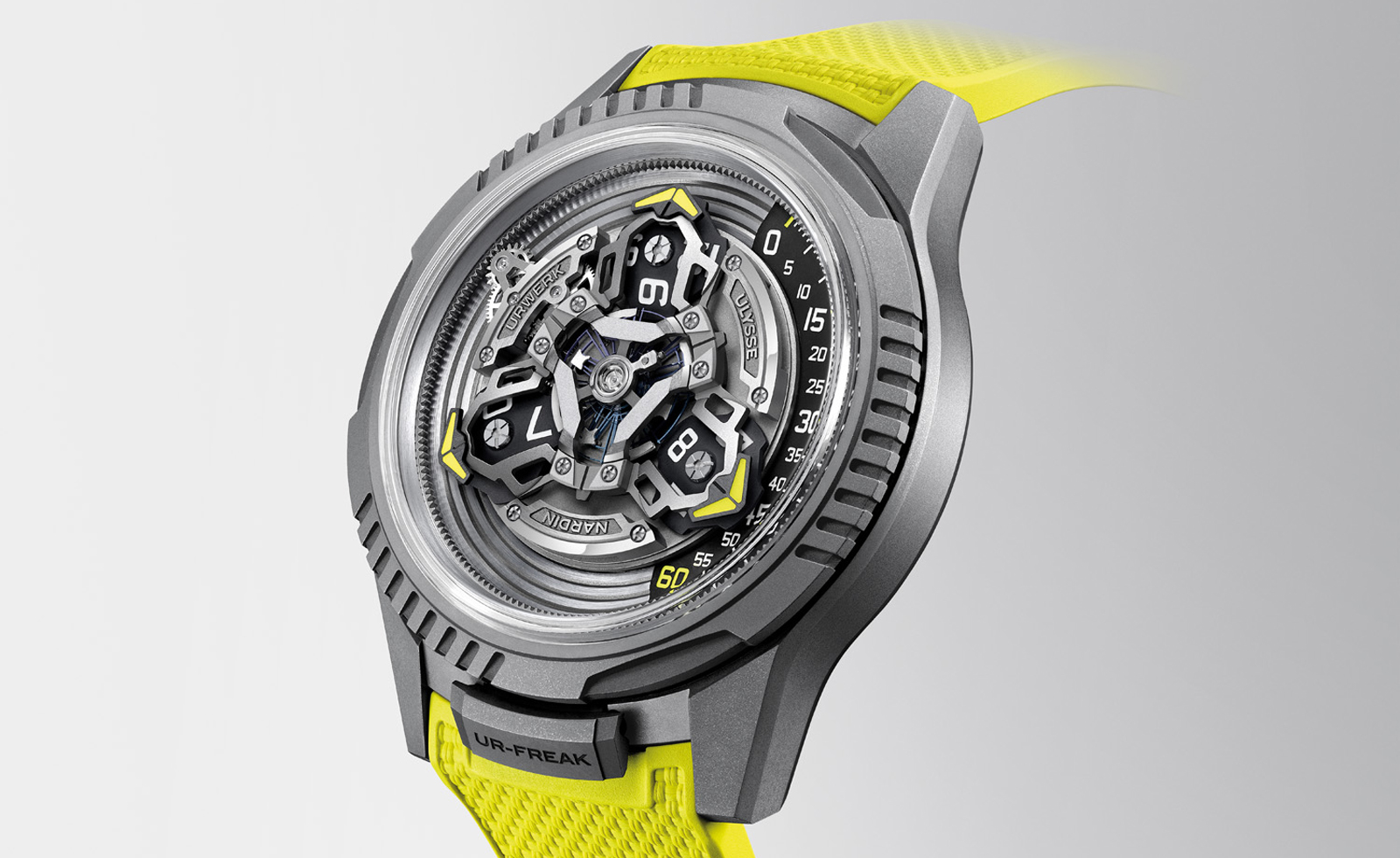 Wallpaper* Design Awards: A ‘no-hands’ watch is the Best Time Warp of 2026
Wallpaper* Design Awards: A ‘no-hands’ watch is the Best Time Warp of 2026The Ur-Freak watch by Ulysse Nardin and Urwerk reimagines a 2001 timepiece and wins a Wallpaper* Design Award
-
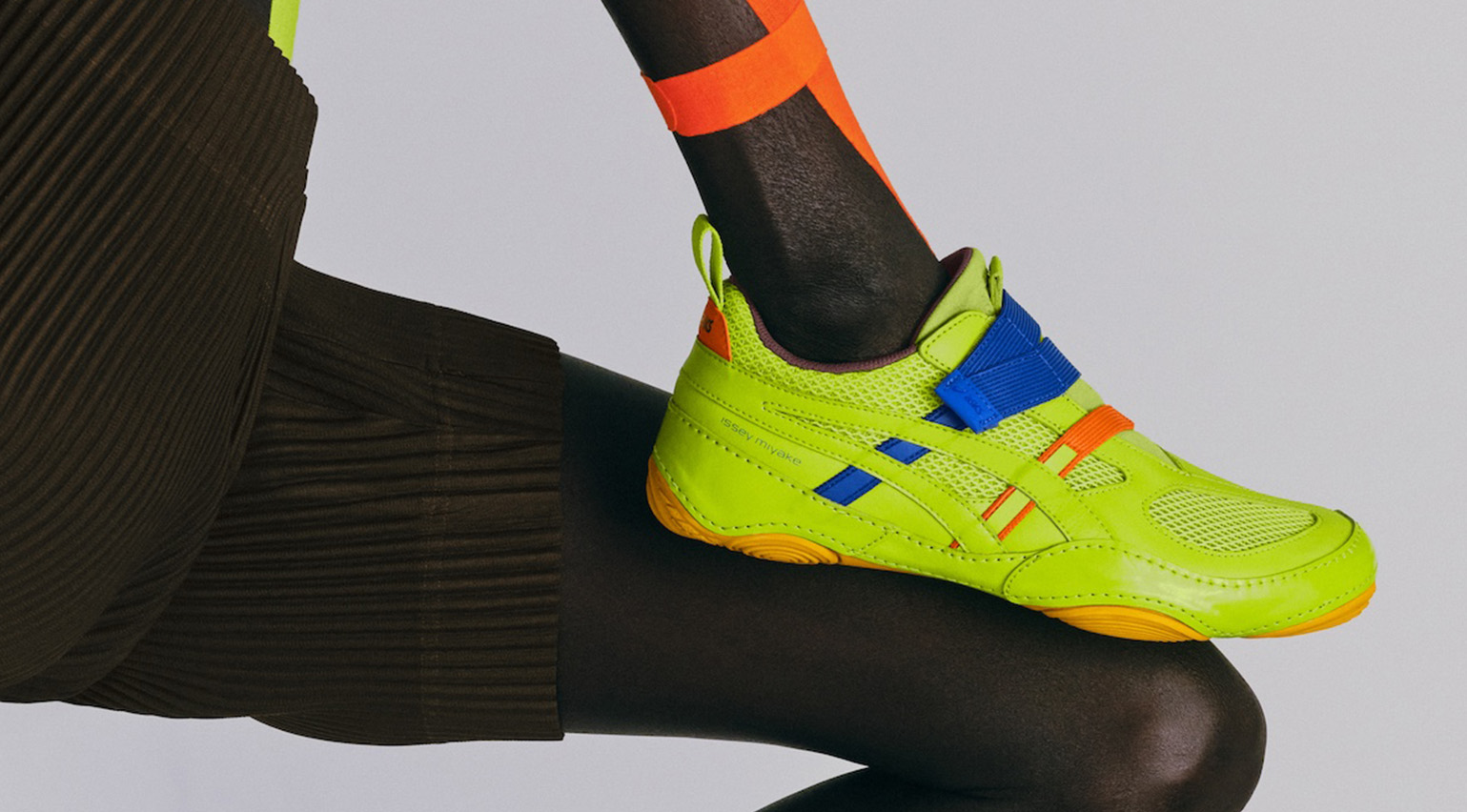 Issey Miyake’s colourful collaboration with Asics is making an early claim for sneaker of the year
Issey Miyake’s colourful collaboration with Asics is making an early claim for sneaker of the year‘Issey Miyake Foot’ is the name of a new, ongoing project between Miyake Design Studio and Asics. First up? The ‘Hyper Taping’ sneaker, which launches later this month
-
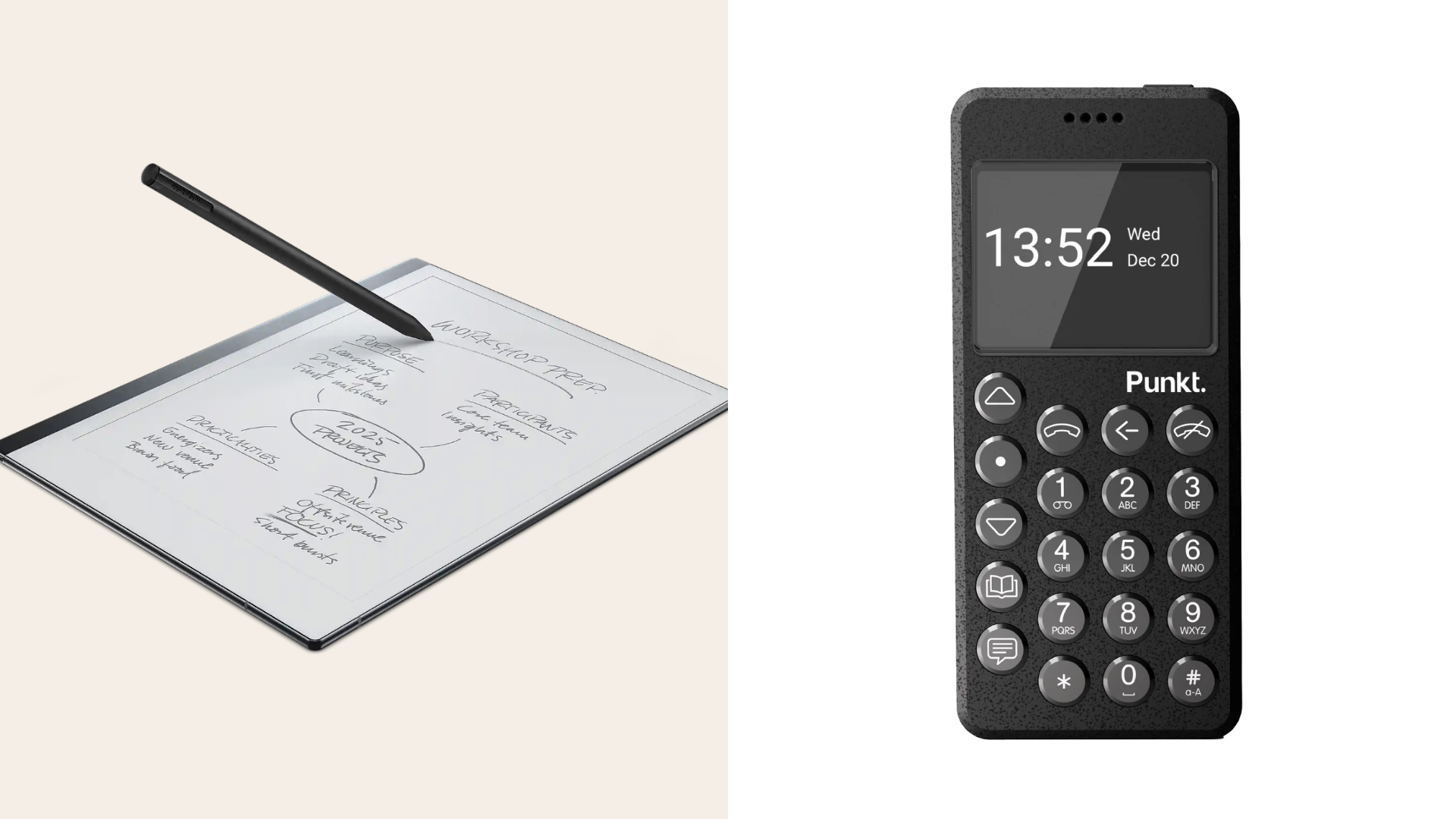 Too much screen time is taking a toll. These low-tech devices can help you step away and unplug
Too much screen time is taking a toll. These low-tech devices can help you step away and unplug‘Digital burnout’ is real; now, people are ‘detoxing’ by choosing intentionally limited tools. Could such gadgets cut your tech dependence?
-
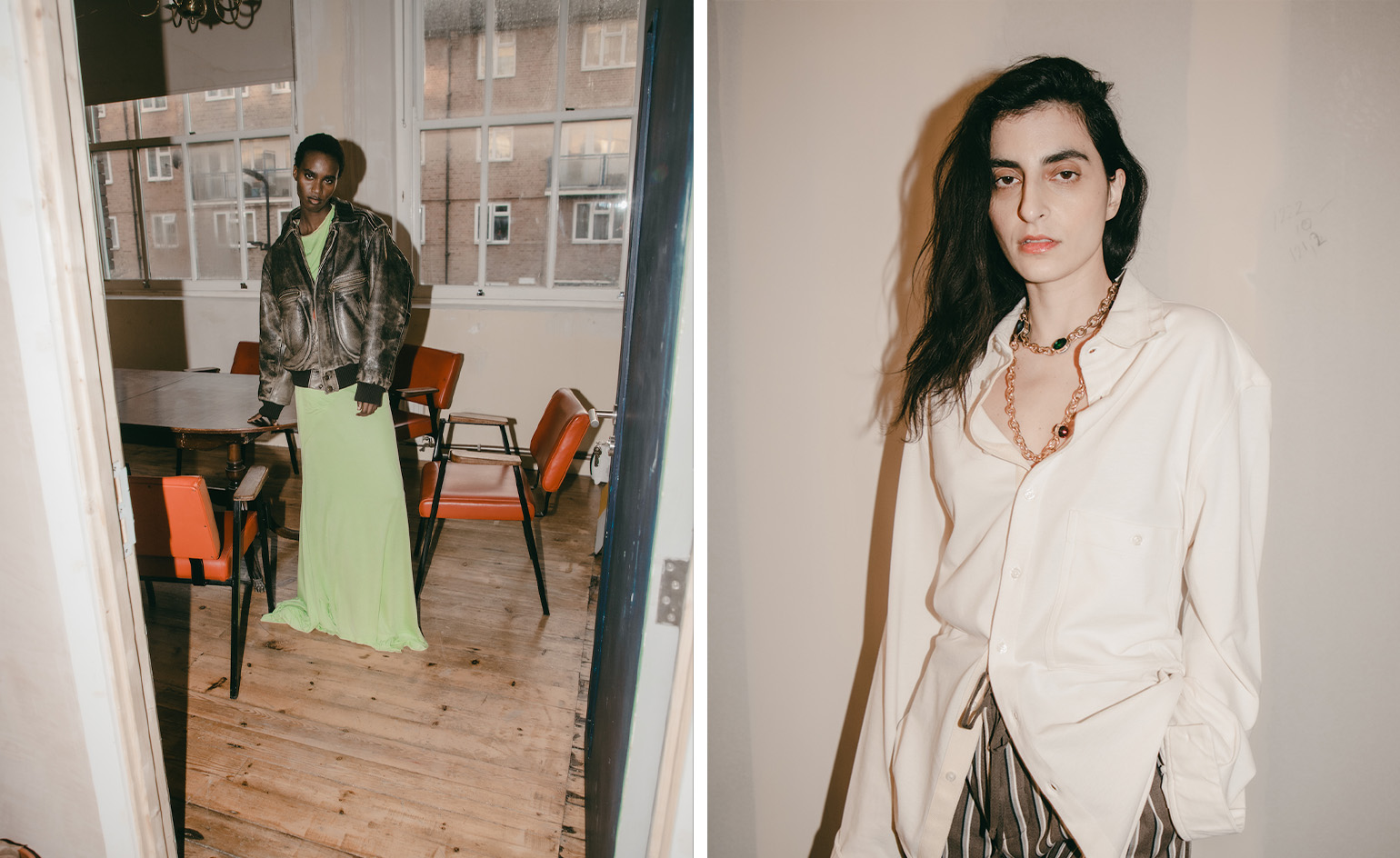 Cult 1960s boutique Granny Takes A Trip gets a sustainable reboot
Cult 1960s boutique Granny Takes A Trip gets a sustainable rebootFounded on King’s Road in 1966, ‘radically creative’ fashion store Granny Takes A Trip is being reimagined for a new generation. Dal Chodha takes a closer look
-
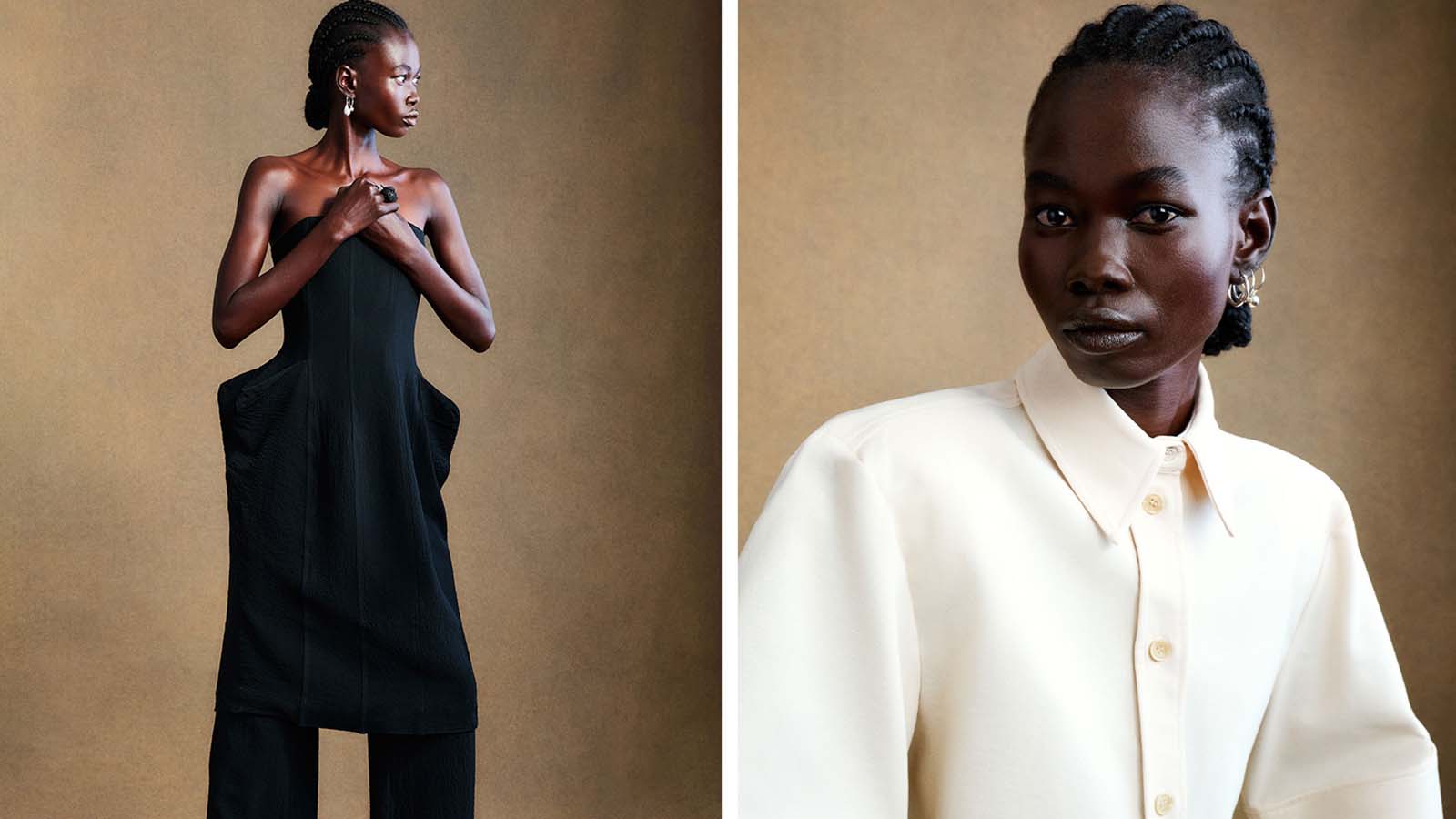 BITE Studios: ‘We want to have a brand which makes an impact’
BITE Studios: ‘We want to have a brand which makes an impact’BITE Studios is marrying sustainable textiles – from seaweed fabric to pea silk – with designs by a team including alumni of Proenza Schouler and Acne Studios
-
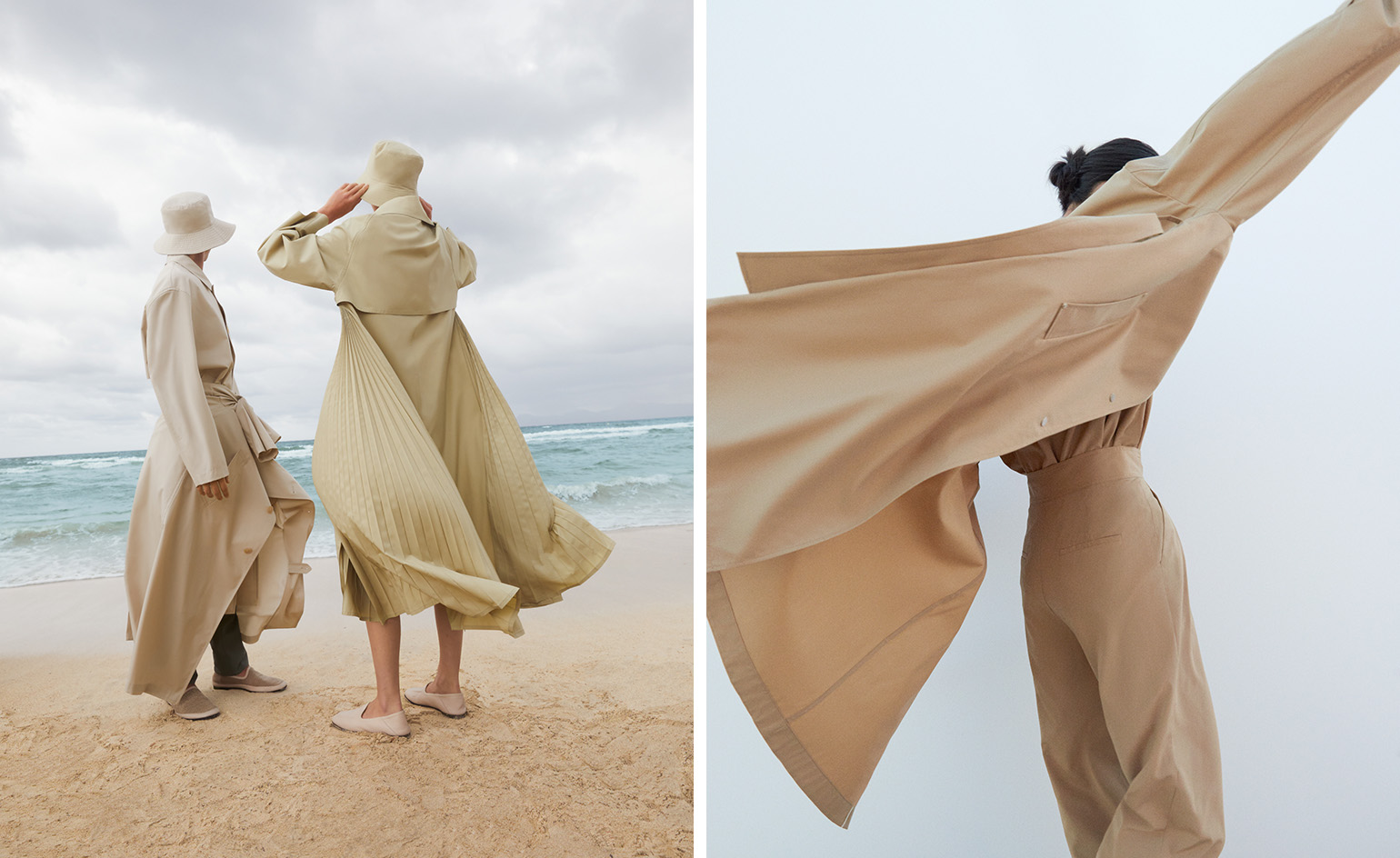 Icicle, the cross-continental label championing sustainability for 25 years
Icicle, the cross-continental label championing sustainability for 25 yearsOn the arrival of a new collection, ‘Hemp Up’, womenswear artistic director Bénédicte Laloux tells Wallpaper* the story behind minimally minded fashion label Icicle
-
 Louis Vuitton announces decade long project to rewild London's Chelsea
Louis Vuitton announces decade long project to rewild London's ChelseaCentral London’s first ‘Heritage Forest' on Pont Street in Chelsea, will be the result of a rewilding partnership between Louis Vuitton, Cadogan and SUGi
-
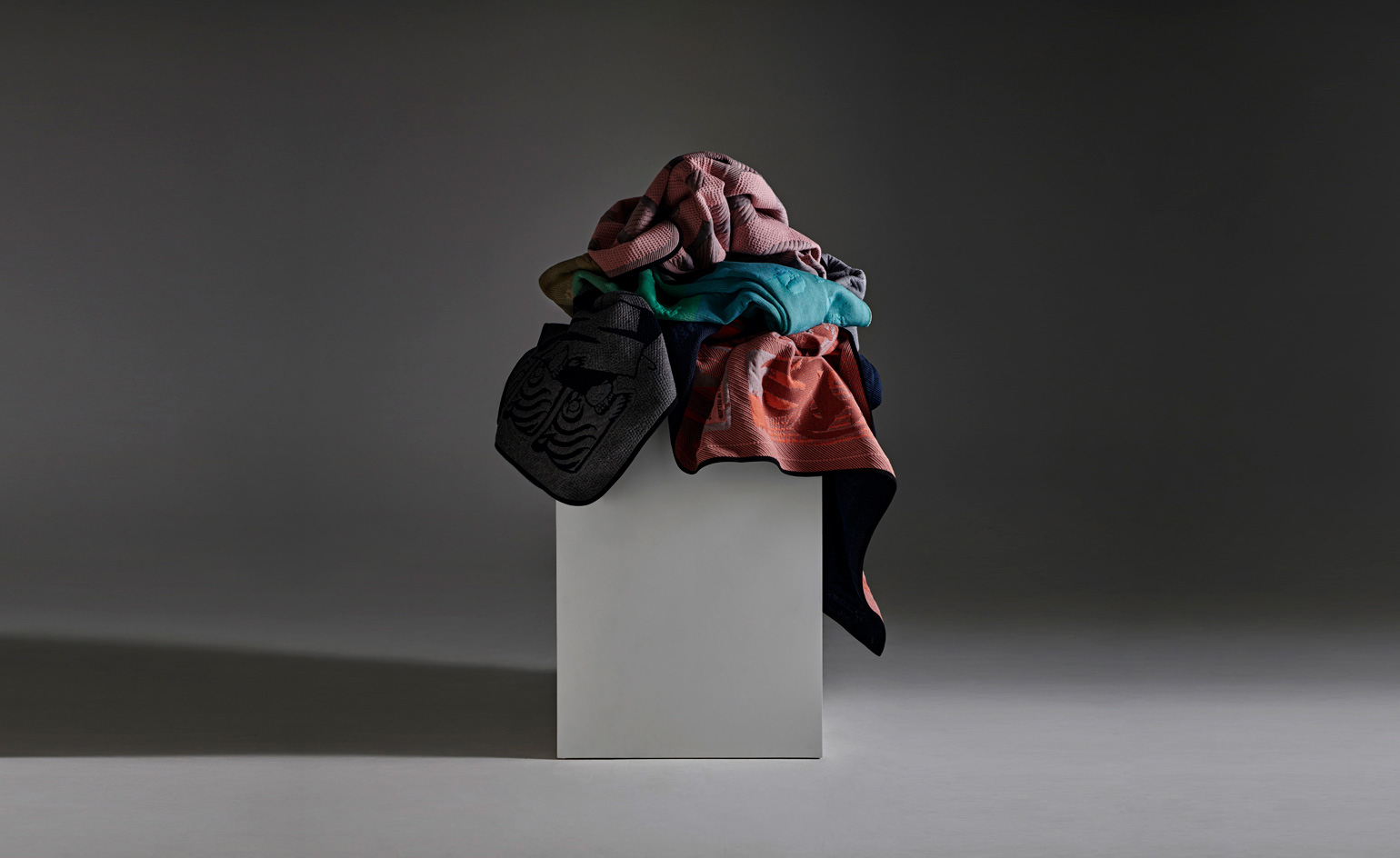 Textile innovator Byborre empowers creators to cut waste
Textile innovator Byborre empowers creators to cut waste‘We developed a new process that allows creators to innovate,’ says Borre Akkersdijk, co-founder of Dutch textile innovation studio and clothing label Byborre
-
 Water inspires Holzweiler’s Snøhetta-designed Oslo flagship
Water inspires Holzweiler’s Snøhetta-designed Oslo flagshipHolzweiler Platz, the new retail destination of fashion brand Holzweiler in Oslo, is designed by architects Snøhetta as a naturalistic space that unites fashion, art and food
-
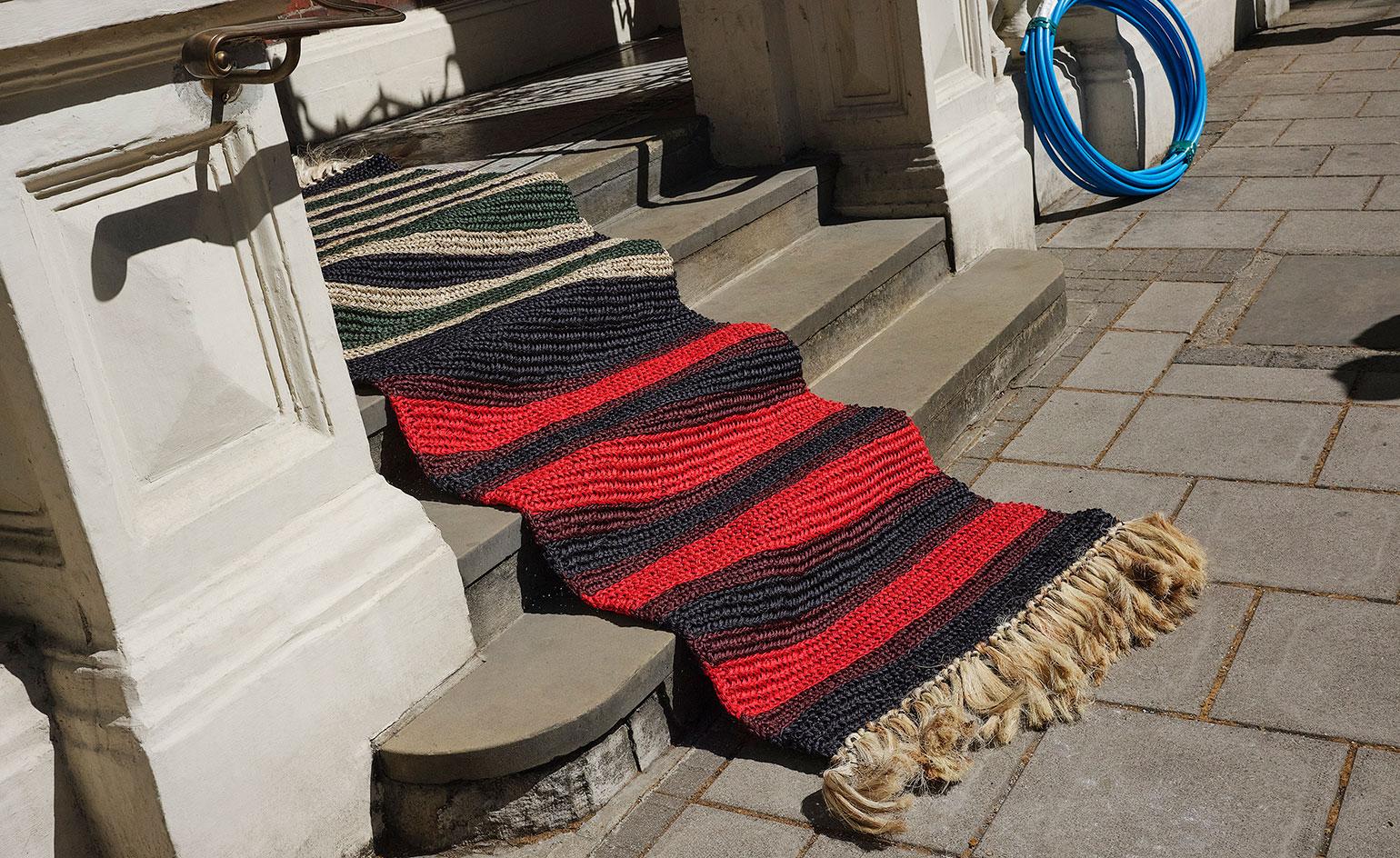 Marni Market arrives at Matchesfashion in Mayfair
Marni Market arrives at Matchesfashion in MayfairMatchesfashion is offering first access to its new Marni Market to Wallpaper* readers
-
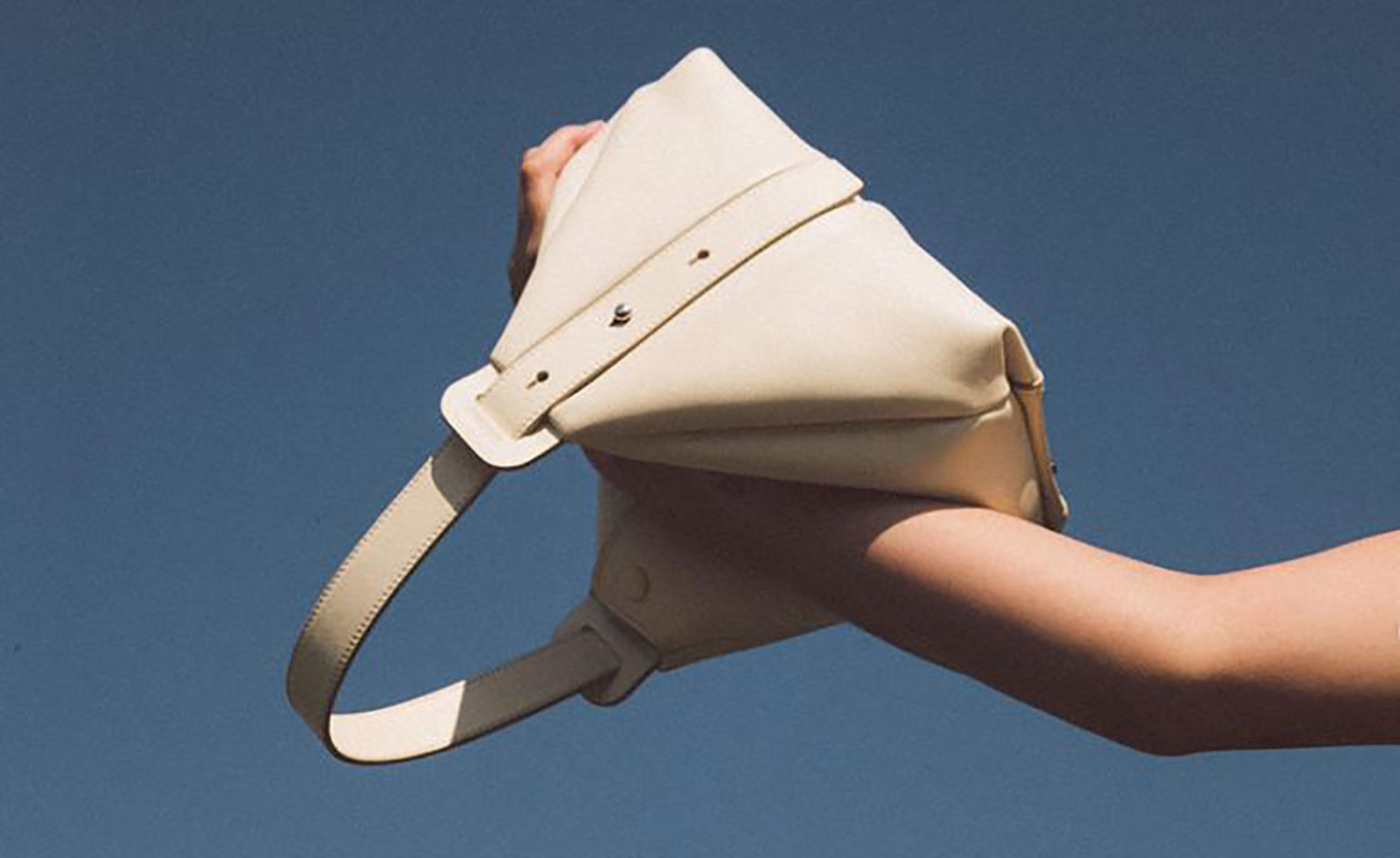 Advene’s debut bag is forever
Advene’s debut bag is forever‘We want our debut bag to stand the test of wear, weather, and time’